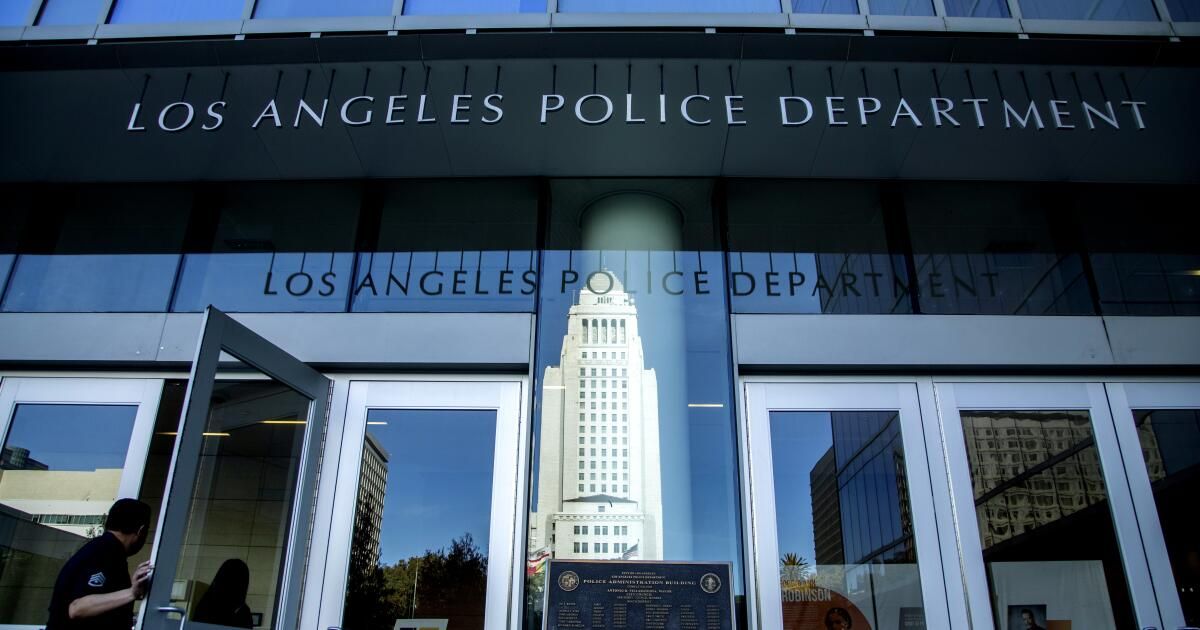Crime trends in Los Angeles tend to start quickly and spiral out of control before being eclipsed by the next crime phenomenon. In recent years, the city has been plagued by waves of catalytic converter thefts from parked cars, violent robberies at luxury stores, thefts from big-box stores and mom-and-pop shops, “robbery tourism” thefts allegedly committed by visitors from South America, and theft of streetlights for copper wire, among other crimes.
The city needs a police department that is agile enough to quickly identify and eliminate these trends. It must have sufficient investigative resources, be vigilant about the activities of the criminal underworld, and have a well-established line of communication with other cities and agencies to prevent crimes from becoming trends.
And, critically, it needs a leader with the vision, skill and persuasiveness to reorient officers who too often focus on combating crime trends with decades-old approaches and reversing hard-won reforms — for example, misdemeanor status for drug possession and the elimination of monetary bail for most misdemeanor arrests in Los Angeles County.
That’s something Mayor Karen Bass and the Board of Police Commissioners should keep in mind as they move toward selecting a new chief for the Los Angeles Police Department later this year. Chief Dominic Choi is serving in an interim capacity between the departure earlier this year of Chief Michel Moore and the selection and installation of a new chief for a five-year term.
While others are involved in selecting candidates, the choice ultimately belongs to the mayor, and she is steering the process appropriately. Improving and refocusing the police department is her most important job, along with the related priority of reducing homelessness. Bass is the right person for the job; she has devoted much of her career as an organizer and elected official to police reform.
The to-do list he has for his new boss will surely include a plan to address a spate of police killings and other uses of force, a constant challenge in Los Angeles as in most big cities. It will include, as it should, the ability to work with mental health professionals and colleagues to find ways to deal with suspects who appear to have psychiatric or substance abuse issues. It should include the ability to engender respect among officers and the public and to communicate with them.
But it should also include a desire that the next police chief have a plan to respond quickly to crime trends that are occurring at an ever-faster pace and do more than simply agitate for a return to failed criminal justice policies.
The LAPD has a mixed record on responding to the latest trends and sometimes seems stuck in the past. For example, Moore repeatedly complained that eliminating cash bail for some crimes results in carjacking defendants being arrested, released and arrested again for the same crime multiple times in a matter of days. But the problem was never the elimination of cash bail. It was a separate issue: unconditionally releasing suspects who have demonstrated a propensity to reoffend. Law enforcement can hold a suspect until arraignment even in the absence of cash bail.
LAPD officers have also wrongly complained that the 2014 criminal justice reform measure, Proposition 47, decriminalized shoplifting and drug use, so they have no power to combat those problems. But that's incorrect; the ballot measure did no such thing, and police response, including arrest when appropriate, remains necessary.
In the case of the copper wire theft, the Los Angeles Police Department joined forces with other city departments to investigate and arrest the thieves, with promising results. This shows that the department is fully capable of responding quickly.
A good chief will steer the department toward those kinds of solutions, working with federal and foreign authorities to track down and deny entry to stealing tourists, with automakers to secure catalytic converters, and with online sellers to stop the sale of stolen retail goods. A good chief will remind officers that misdemeanors are still crimes, subject to arrest, and that criminal justice reforms that reduce recidivism or provide non-carceral solutions to crime problems enhance, rather than weaken, law enforcement.
Such an approach to public safety requires a strong, forward-thinking chief who understands that making policing more effective and public safety more collaborative is the best way forward.












